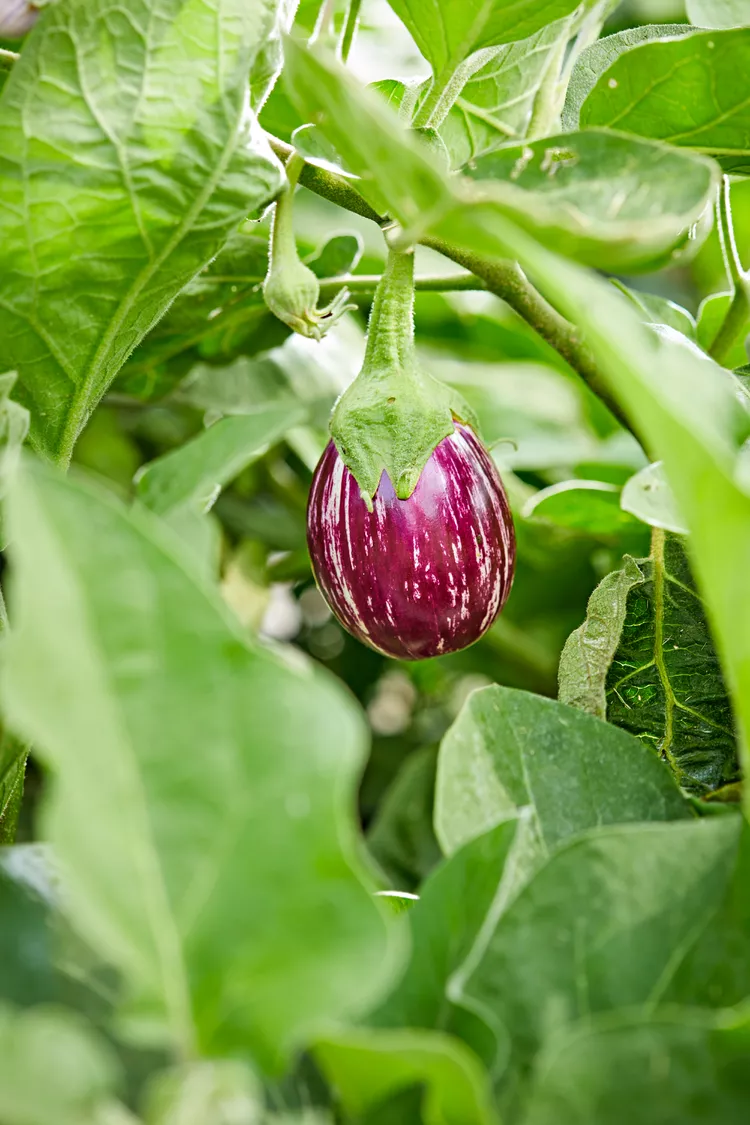10 Best Eggplant Companion Plants

Growing and picking your first bright purple eggplant in your garden can be very satisfying. But pests can damage your crop or you may get a smaller harvest if your eggplants are stressed. Companion plant eggplant with the following flowers, veggies, and herbs, and you'll have fewer pest problems to worry about. Plus, you'll keep your plants healthy and productive naturally.
Marigolds
French Marigolds can help repel several common eggplant pests, including nematodes. When in bloom, marigolds will also attract beneficial insects such as lacewings to your garden, which prey on aphids.
Bush Beans
Colorado potato beetles are a major pest of eggplants, as well as other members of the nightshade family. Bush beans can keep this pest away, so pairing bush beans with your eggplants can help protect your plants. Because bush beans stay smaller than vining bean varieties, they are also less likely to overwhelm your eggplants.
Dill
Dill isn’t just a delicious herb; it's also an amazing companion plant that offers several benefits for eggplants. When dill is allowed to grow, it can be absolutely irresistible to parasitic wasps and other beneficial insects. These insects will feed on armyworms and other pests and help keep your eggplants looking their best.
Borage
Borage is a less commonly planted herb, but this pretty pollinator plant boasts periwinkle blue flowers and leaves that taste a bit like cucumber. When planted near your eggplants, borage can help boost pollination rates and increase your harvest.
Nasturtiums
Nasturtium is another fantastic pollinator plant that can help boost your eggplant yields. But nasturtium is also a top “trap crop,” which can be used to protect your eggplants by luring pests away. Nasturtium comes in both mounding and trailing varieties, but mounding types tend to be easier to keep in garden beds as they grow more compactly.
Spinach
Spinach is a low-growing plant that matures quickly. Sowing spinach seeds beneath your eggplant is a smart use of gardening space as you may be able to gather a harvest or two of spinach before your eggplants mature. What’s more, by keeping spinach leaves sheltered beneath taller eggplants, you can slow down spinach’s tendency to bolt and extend your harvest.
Oregano
Like many other flowering herbs, oregano is useful for both attracting beneficial insects and repelling nuisance pests. Bees adore oregano flowers and sowing this herb near your eggplants can increase your vegetable harvest. In the kitchen, the flavors of oregano and eggplant pair beautifully together in such classic dishes as eggplant parmesan.
Mint
Mint plants can repel flea beetles, aphids, and other pests and their flowers are very attractive to pollinators. Growing mint near your eggplants can help keep your garden beds pest-free naturally. Just keep in mind that mint can spread quite aggressively, so you may want to keep this plant in containers or pots placed among your eggplants.
Hot Peppers
It's usually best to avoid growing plants in the same family close together because they can be susceptible to the same diseases. Because hot peppers and eggplants are both members of the nightshade family, planting these veggies together may not be an obvious choice at first. However, hot peppers’ spice level makes them naturally resistant to most pests and they have the same growing requirements as eggplants, meaning you won’t have to do a lot of extra garden prep to keep these plants together.
Wormwood
Wormwood is another plant that is often overlooked in the garden, although it is sometimes kept as a pollinator plant. When paired with eggplants, wormwood can keep pesky flea beetles away. A member of the Artemisia genus, wormwood is known for its highly fragranced leaves, which are often used in homemade potpourri making.